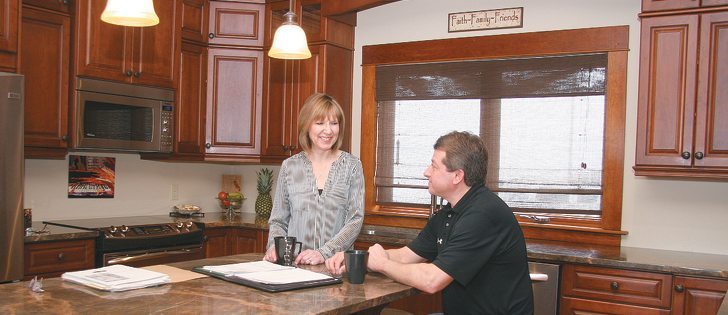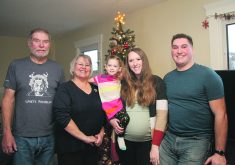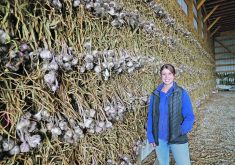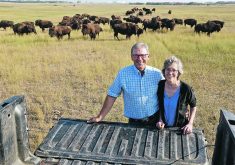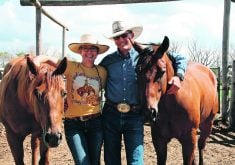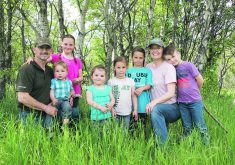ROSETOWN, Sask. — A switch to variable rate fertilizer applications two years ago was a giant step forward for Rosetown farmer Richard Seibold.
“That was big for me. I’m from the old school,” he said.
Richard grows lentils, peas, canola and wheat on 7,000 acres with his wife, Claire, their teenaged daughter, Kaitlyn, son Jeff and his partner, Kelsey Pelletier, and daughter Carly and her husband, Morgan Nunweiler.
The adaptation involves mapping field yields at harvest, soil sampling in the spring and plugging data into the global positioning system so the air seeder adjusts fertilizer rates as it goes.
Read Also

Nutritious pork packed with vitamins, essential minerals
Recipes for pork
“This allows me to spend my money on fertilizer where it’s needed rather than one big blanket of fertilizer,” he said.
The Seibolds say fertilizers are expensive and margins are narrow.
They had a good crop year with above average yields. The family pre-sold some before prices dropped off, which they will repeat with lentils this spring.
“Now the price went in the tank so we’re not really reaping the benefits,” Richard said.
The family’s farmland, some of which is rented, includes parcels as distant as Stranraer and Glamis, so good co-ordination and organization and regular meetings are key.
“We have to co-ordinate what we plant so we’re not running all over with the combine,” he said.
Claire said farm succession planning is helping the next generation get on the land just as it helped them.
“Kids just can’t start farming without us,” she said.
Added Richard, who started farming with his parents, Lloyd and Dorothy: “You can’t just buy.”
The Seibolds also received strong support from retired farmer Peter Rowbotham, whose land they rented.
They met the difficult years with non-farming work, employing used equipment and doing without.
“In the hard years, material things were not high on the priority list,” said Richard.
Everyone pitched in, including Carly, who made meals and babysat her young sibling.
Claire once taught piano to as many as 60 students.
She continues to teach 25 young musicians in her home, which houses two pianos in a room off the kitchen and a grand piano.
The family farm model works well, allowing the Seibolds to farm more acres, use existing equipment and avoid hiring extra help.
“We all do what we want to do,” said Richard, who supported the farm by building and selling homes until 2002.
“That’s when we jumped in with both feet.”
Richard put those skills to work 11 years ago when he renovated the family’s two-storey home at the edge of town.
Claire described her “jack of all trades” husband as patient and industrious and “an amazing cook.”
“He’s a workaholic in a good way. He loves to farm,” she said.
Richard likes being his own boss.
“If you don’t get the work done, you only have yourself to blame. I answer only to myself.”
“Maybe we don’t know anything else,” added Claire, who also grew up on a farm at Brock, Sask.
She said rural life brings challenges and rewards. It means long distances to transport children to activities such as hockey and dance but also provides opportunities to play piano in church and dance in shows in town.
“In a little community, kids are made a fuss of,” said Claire. “There are many opportunities living in a rural community that would not be possible (in the city).”
Added Richard: “This is a great community. Rosetown is great place to live.”
The Seibold century farm was homesteaded by Richard’s grandparents, Louie and Laura, who came from Wisconsin. It was later farmed by Richard’s uncle and then Lloyd before Richard and Claire took it over in 1989.
“We think of ourselves as young farmers,” said Claire, noting how both her father and Lloyd continue to help in the fields.
They say the future looks good for the next generation if their current interest in farming continues.
“Some day, I will slow down and hand more of the farming responsibility to them,” said Richard.



